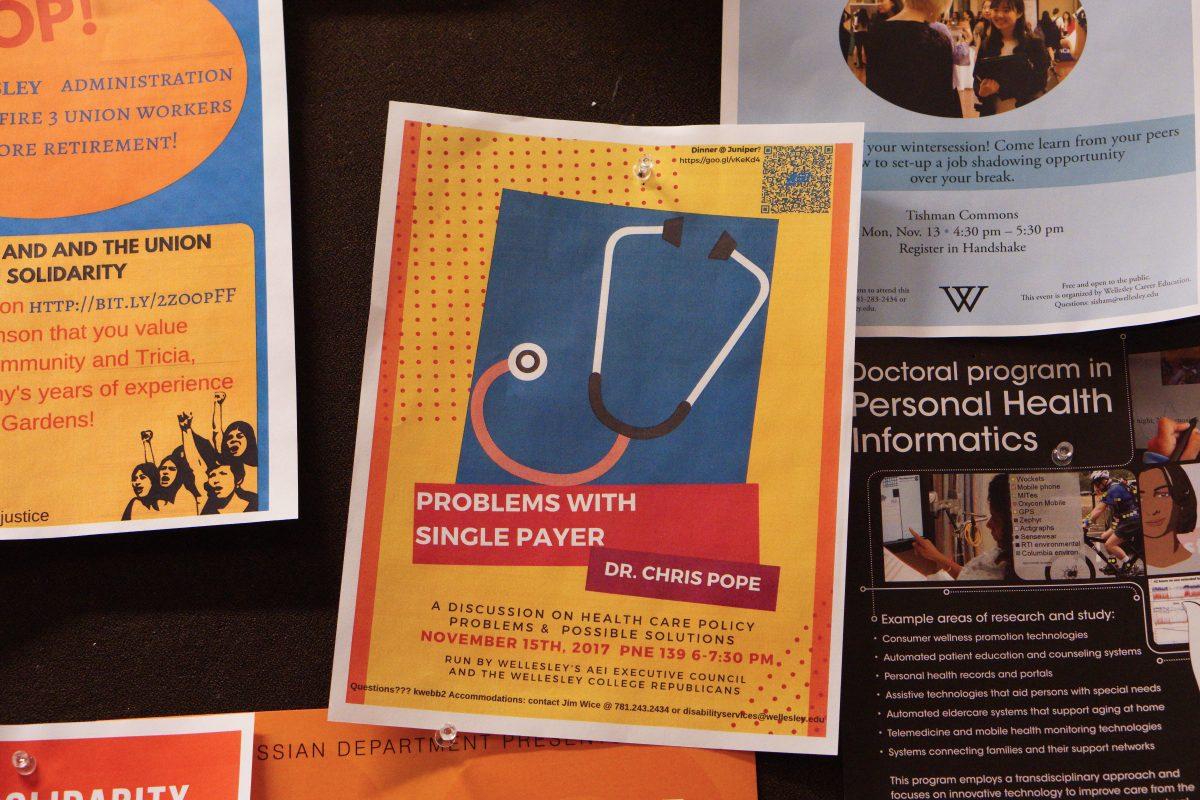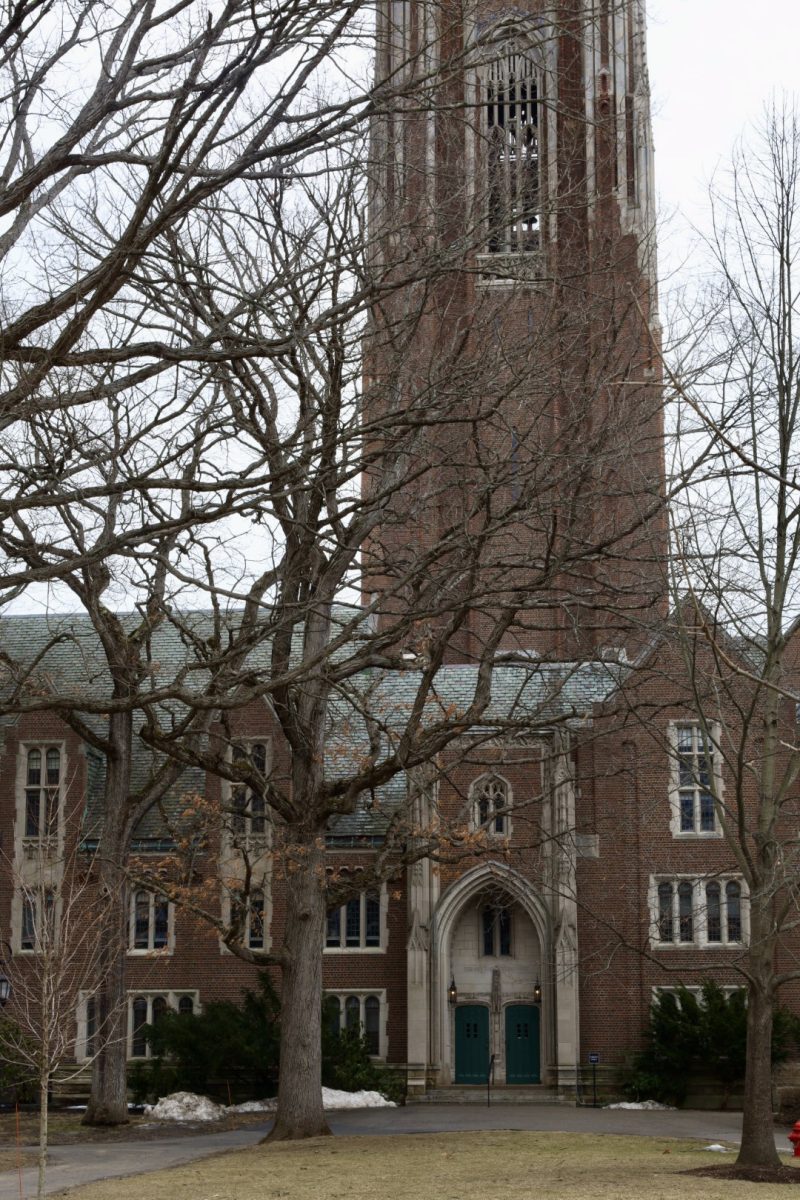Last week, posters advertising a joint Wellesley College Republicans and Wellesley’s American Enterprise Institute (AEI) Council, “Problems with Single Payer: A Discussion on Health Care Policy Problems and Possible Solutions,” were torn down in the Science Center and the Lulu Chow Wang Campus Center. The talk, which features speaker Chris Pope, Ph.D., is scheduled for Nov. 15 from 6 p.m. to 7:30 p.m. in Pendleton 139 and is intended to start a discussion about single-payer health care.
On Nov. 11, Kaila Webb ’20, president of WCR, sent an email to the student body after the posters had been torn down. In it, Webb details her personal history with the American health care system. She had hoped that the joint event would be “a perfect opportunity to bring the [single-payer health care] topic and debate to campus.” The email goes on to recount the incident in which an unknown party removed eight of the 10 posters in the Science Center and six of the eight posters in the Lulu Chow Wang Campus Center less than 24 hours after they were first put up.
Webb expressed concern and confusion over the party’s actions. “I had not received any email or confrontation concerning the spam or content, and was saddened that [someone] would respond with a destructive force rather than trying to contribute their own opinion into the discussion,” she stated.
Catherine Woodhouse ’18, events coordinator for Wellesley’s AEI Council, likewise conveyed a similar confusion, believing that the removal was a mistake at first. But after the majority were removed, Woodhouse expressed disappointment with the community response. She believes that “this action … unfortunately felt like an attempt to entirely erase our event … This is especially concerning, seeing as now more than ever students deserve a platform for which to discuss their opinions and engage with others in a meaningful and mutually beneficial way.”
Two days after the email informing the school of the vandalization was sent out, an unknown party posted spam on top of the original flyers. The anonymous flyer read: “Eat s*** bigot. If it’s your right to advocate for racist, homophobic, sexist and otherwise elitist ideas that harm us and the people we love, we have every right to tell you to SHUT THE F*** UP [emphasis theirs].” The message was signed “Love, the other students who go here.”
Tearing down posters advertising talks about controversial topics has not been uncommon on campus over the past few years. Last year, advertisements for a Freedom Project lecture “Identity is Not Politics,” given by Columbia University professor Mark Lilla, were torn down, and a student-led campaign to replace the offending flyers with posters featuring student opinions regarding the topic began. Likewise, posters for a Suzy Newhouse Center event “Some of My Best Friends are Zionists,” a film screening and director talkback centering on views of Israel, were defaced or torn down around campus. However, the aftermath of that event inspired much more administrative support than is currently being seen, including statements from Wellesley Jewish Voice for Peace, Wellesley Students for Justice in Palestine, the Office of Religious and Spiritual Life and President Johnson.
Webb and Woodhouse both stated that they are “greatly shocked by this profanity” and are “working with administration and College Government to resolve this issue.” Among the administrative officials who have offered support are Dean of Students Sheilah Horton and the Office of Student Involvement. However, both Webb and Woodhouse note that the administration can only go so far to denounce these anonymous occurrences, saying that “no matter how hard the administration tries to encourage dialogue, it doesn’t matter if we students don’t want to speak with one another.” Nimo Suleyman ’20, chair of the Senate Policy and Ethics Committee (SPEC), declined to comment.
As president of the Wellesley College Republicans, Webb has met with the heads of other organizations regarding the treatment of Republicans on campus on two separate occasions. While many have been receptive to the concerns raised by Webb, she has “had several students approach [her] with contempt and refuse to engage in meaning[ful] discussion.” Woodhouse has not experienced the same issue. She notes that this is the first Wellesley AEI Council’s event to draw this degree of negative attention. Even so, Woodhouse hopes that Wellesley will embrace students who have dissimilar views.
“As Americans and Wellesleyans, we accept and embrace differing views and hope that others will not be intimidated by the violent attacks of a vocal group. In this age of division, we hope to tear down walls between us, not posters of others’ beliefs,” she stated.






